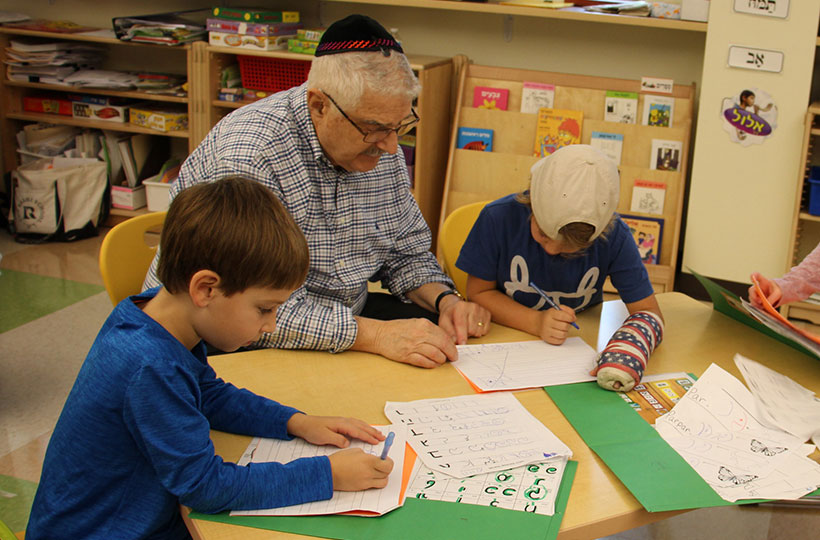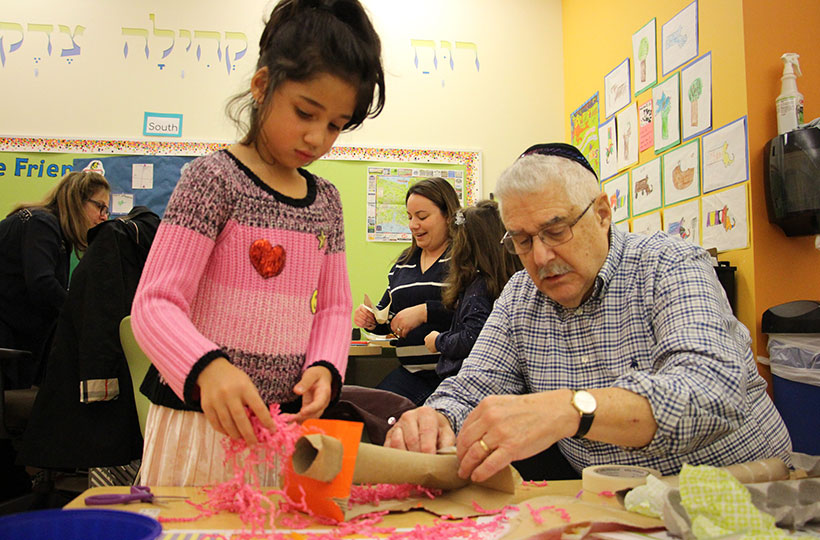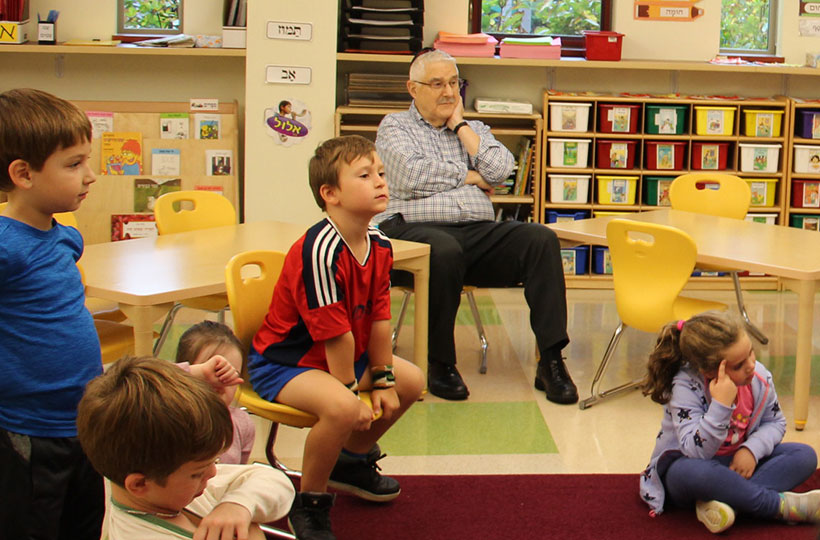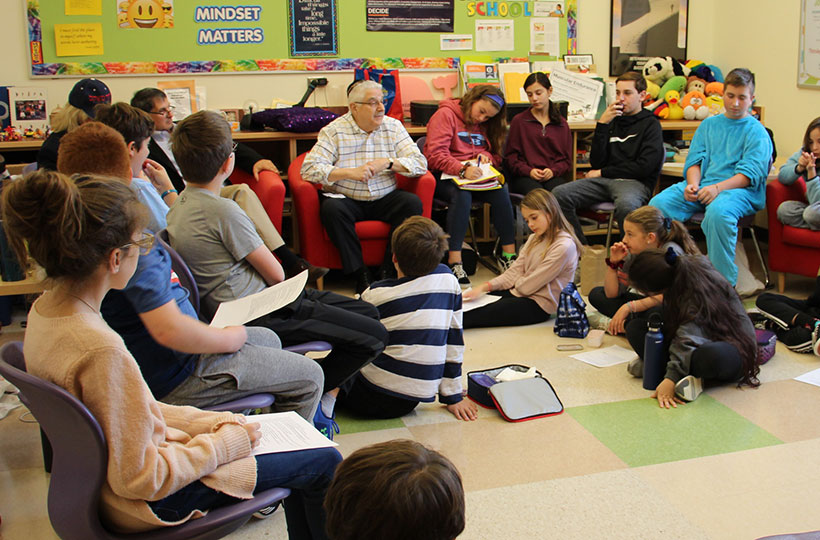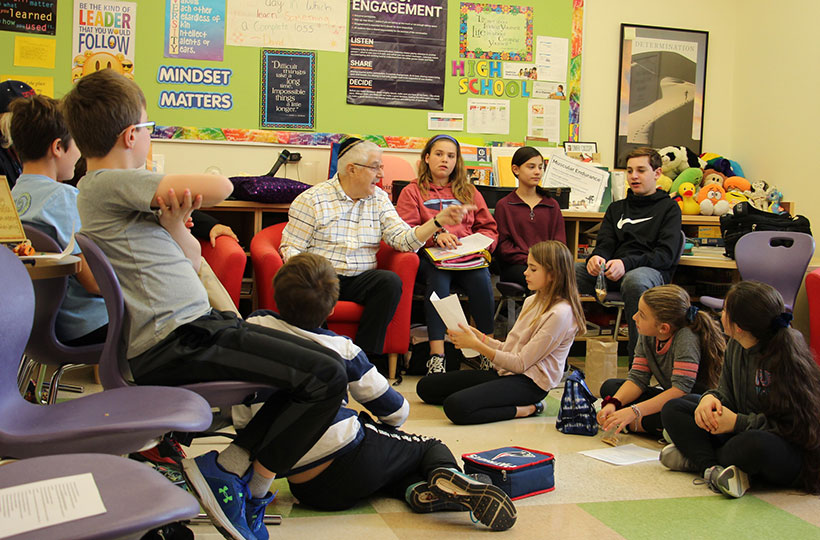Rabbi Henry Zoob is a man of grand ideas, a propensity for learning, and a passion for Tikkun Olam (Repair of the World).
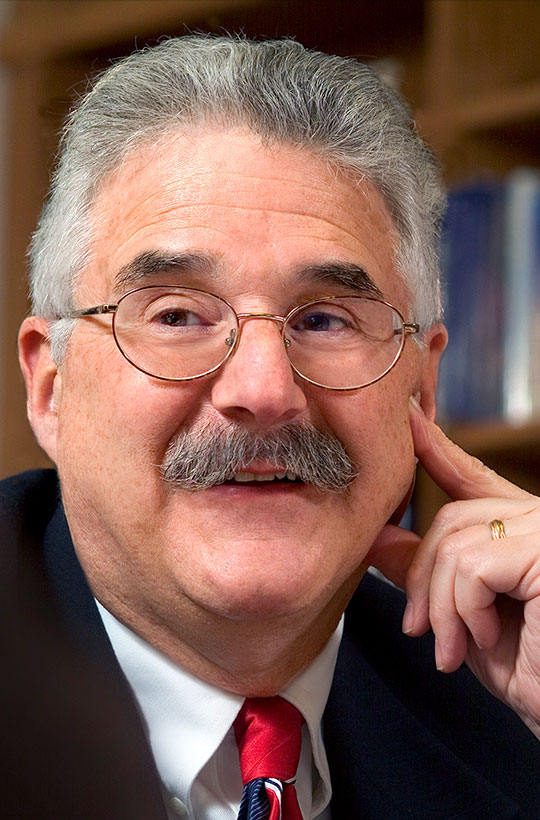
In 1982, under the leadership of Rabbi Zoob, a group of interested individuals from Reform synagogues in the Boston area began meeting to discuss plans to establish a Boston Area Reform Jewish Day School. They spent a great deal of time trying to articulate the distinguishing principles for their proposed school. One of those was instead of separating Jewish studies from secular subjects, the norm for most other day schools, they wanted a school where Judaism was infused into every aspect of the curriculum. A second principle was an emphasis on social action, a hallmark of Reform Judaism. They also felt strongly about creating an environment that addressed and supported gender equality. Finally, they envisioned a school that would include intelligible and creative worship and ritual; kavanah (heartfelt intention) was their goal rather than rote worship. In their mission statement, Larry Gillick, a member of the Founding Committee, coined the phrase “critical minds and compassionate hearts,” a phrase describing the overall goal of a Rashi education, an objective of the founders which has been at the center of our endeavor for over three decades.
Prior to the founding of The Rashi School, day school education was not popular among Reform Jewry. By and large, Reform Jews recognized that the American public school system had helped Jews join the mainstream of American culture and had served as a gateway to success at the best colleges in America. “Public schools had been the conduit for Jewish integration into places where they had been shunned in the first half of the 20th century,” explained Rabbi Zoob. “Given this history, how could Jews turn away from the public school system?” Moreover, Reform Jews were not in favor of day school education because they believed it segregated Jews from other American groups. How could Jews learn to be tolerant of people of different ethnicities, religions, and colors if they were not exposed to these different groups in their grade school and high school education?”
Despite the existence of these anti-day school attitudes among some Reform Jews, with the help of a number of Boston Reform rabbis*, cantors, and lay people, Rabbi Zoob and the Committee of Founders were able to lay the groundwork for the first Reform Day School in the Boston area and one of the few in the entire country. “A lot of people along the way helped to found the school,” said Rabbi Zoob. “Rabbi Rim Meirowitz, our first Head of School who joined us a year before the school opened, played a major role in getting the school off the ground. Without him, we would not have succeeded.” In the fall of 1986, four years after Rabbi Zoob initiated his dream of establishing a Boston Area Reform Jewish Day School, The Rashi School opened its doors to about twenty kindergarten and first-grade students at Temple Shalom in Newton.
Rabbi Zoob was the Founding President of Rashi, but in the first year of his presidency, Rabbi Zoob’s temple, Temple Beth David of Westwood, suffered a devastating fire which destroyed the synagogue building along with its sacred scrolls. As a result, Rabbi Zoob decided to step down as president to tend to his grieving congregation as they sought to sustain synagogue life without a building and begin to make plans to rebuild their house of worship. Fortunately, Burt Goldfarb, a member of Temple Beth Avodah in Newton took over the reins to become the second president of Rashi.
Now, thirty-two years and six temporary locations later,* Rashi in its splendid new Dedham campus adjacent to NewBridge on the Charles, a first-class Jewish senior living continuum of care community, is a thriving, nurturing community filled with students, leaders, and critical thinkers who, above all else, are making a difference in our world.
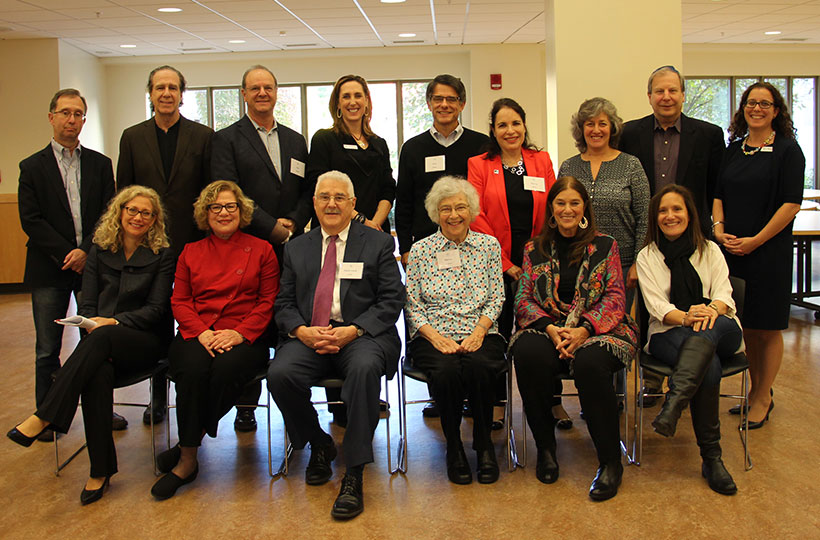
“Rashi is more amazing than I could have imagined,” said Rabbi Zoob. “I feel very blessed that I helped start a school that has turned into such a remarkable institution where we are educating the future leaders of the Boston Jewish community.”
How Rashi Got its Name
Many people wonder about how the school got its name. Why Rashi? Was Rashi a person or does the name have a special meaning? The answer is yes to both questions. Rashi is an acronym for Rabbi Sh’lomo ben Yitzchak who lived in France in the 11th Century. He is viewed as the most important commentator of the Bible and the Talmud due to his succinct and insightful commentaries. “To me, the name Rashi represents the epitome of Jewish education,” said Rabbi Zoob. “For a thousand years, Rashi’s commentaries have been recognized as a crucial key to understanding our sacred texts. By choosing to name our school after him, our school founders were affirming their desire to establish an institution that would promote Jewish educational excellence.”
Engaging with Students
Rabbi Zoob is an honorary lifetime Board Member at Rashi, and he is still very much involved with the school. On any given Friday, you can find him helping first-grade students converse during Ari Marcovski’s Hebrew class. You can also spot him working with Janie Brauer’s students in small reading groups followed by story time when he reads a Sabbath story to the children during their snack. Why does he do it? “I love to be with the children. To borrow a phrase from Barry Shrage, ‘I love the Rashi School,’” he simply stated.
Students in the upper level also have the pleasure of interacting with Rabbi Zoob. During the fall of 2018, he spoke to the middle school student government. Sixth-grader, Teddy F., reflected on the experience in an article he wrote: “What an honor to meet the founder of our school, as he came to our middle school to speak about his Jewish journey, legacy at Rashi, and his book, A Lifetime of Genesis.”
Rabbi Zoob’s visit came shortly after the massacre at the Tree of Life Congregation in Pennsylvania. The students asked Rabbi Zoob his thoughts about what happened in Pittsburgh. Teddy described that moment, “He was speechless for a second, then he said that we have to be educated about incidents like this and not be ignorant of awful events. If we are educated, we can put a stop to antisemitism.”
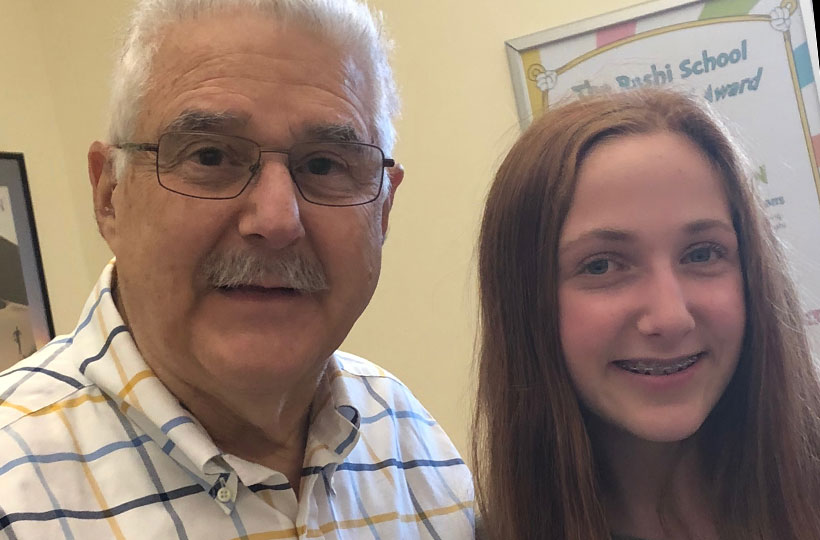
The students were clearly impacted by Rabbi Zoob’s words. Lexie S., President of the Middle School Student Government, summed up what his visit meant to her and her peers: “Rabbi Zoob coming to speak with us was a truly moving and meaningful experience. We all appreciate all of the hard work he has done to give us the amazing education we’re getting, and we are blessed to have him in our lives.”
*Early supporters of The Rashi School include Boston area rabbis Dov Taylor, Paul Menitoff (New England Regional Director of the UAHC), Robert Miller z”l, Bernard Mehlman, Donald Splansky, David Mersky, Herman Blumberg, Ronne Friedman, Murray Rothman z”l, and Sandy Selzer.
*The six previous locations of the Rashi School are Temple Shalom in Newton, the Bigelow School in Newton, Mishkan Tefilah in Chestnut Hill, the educational wing of St. Mary’s Church in Dedham, the High Rock School in Needham, and Aquinis College in Newton.


